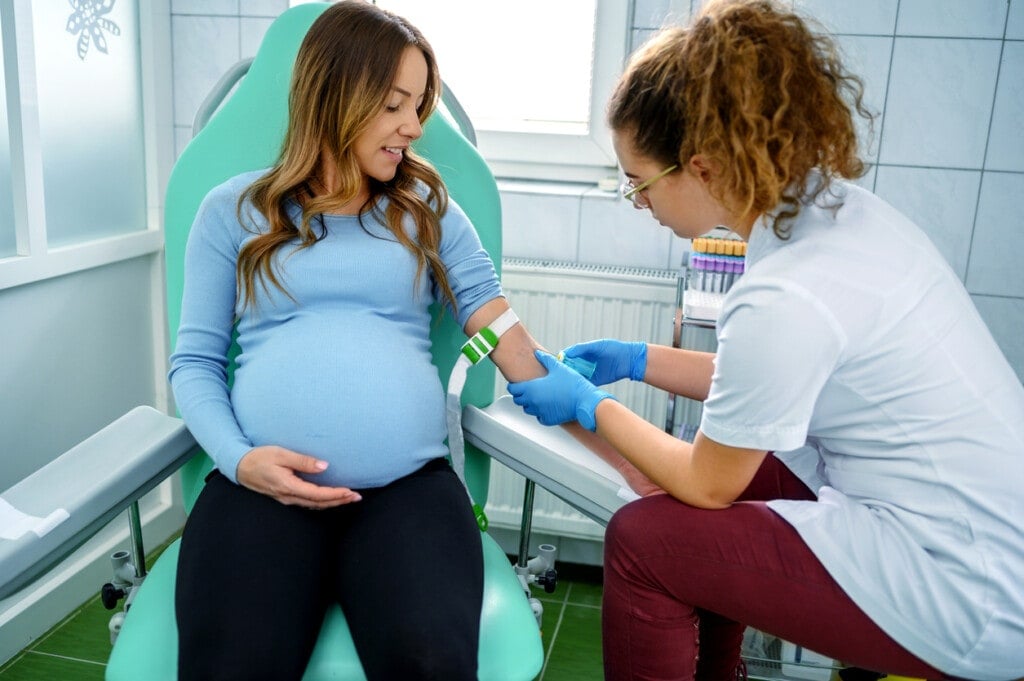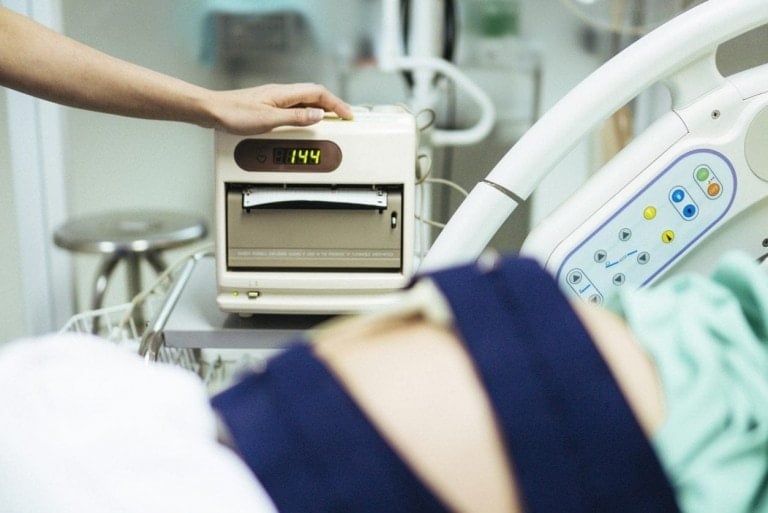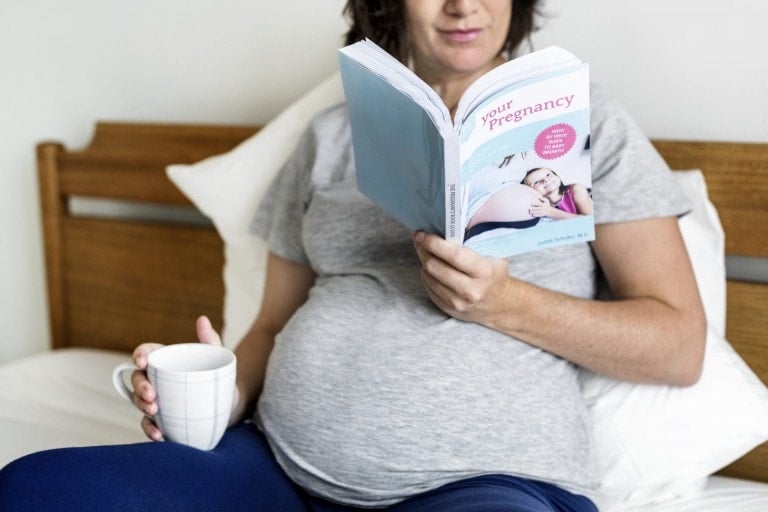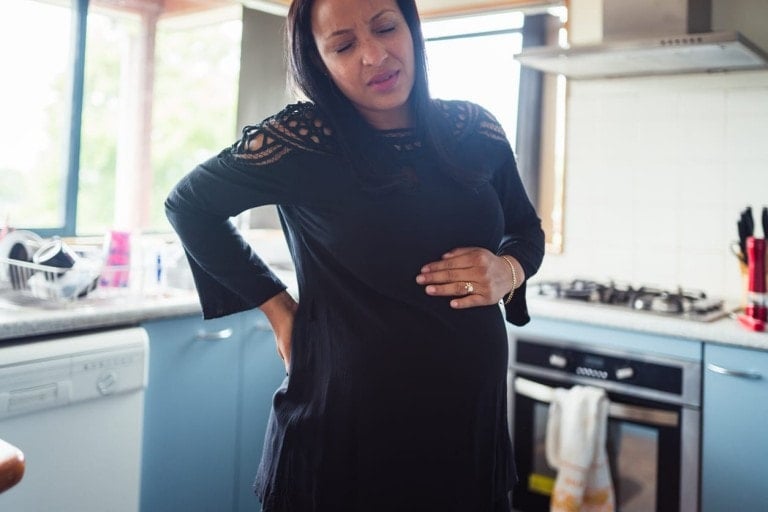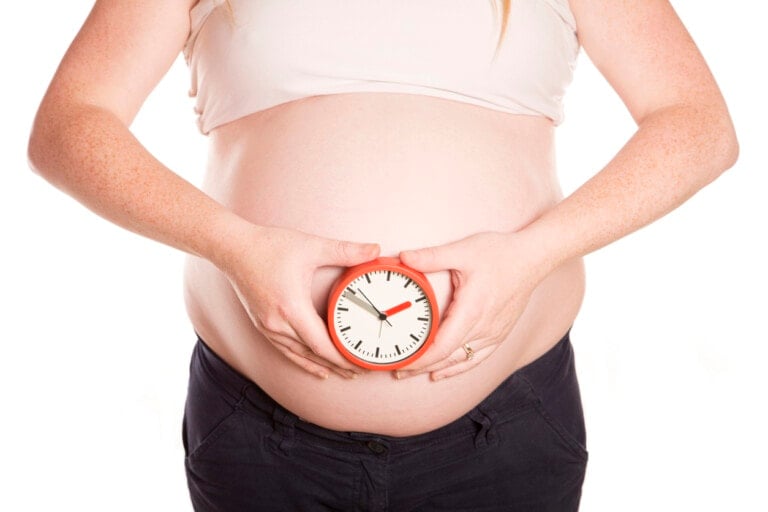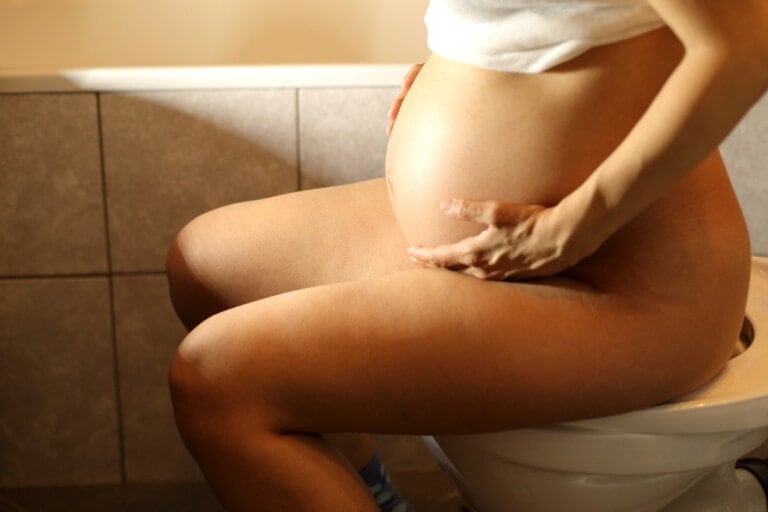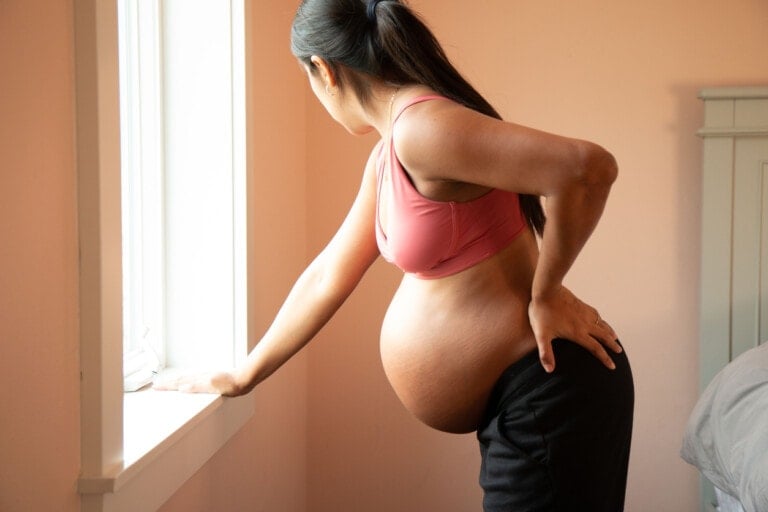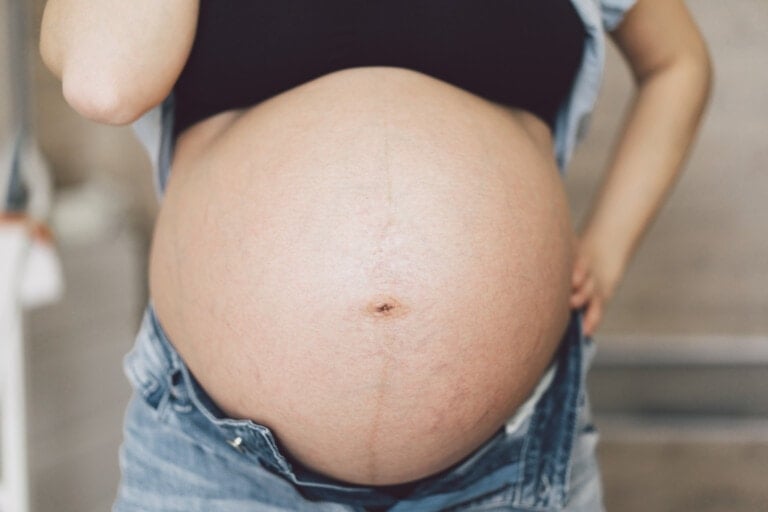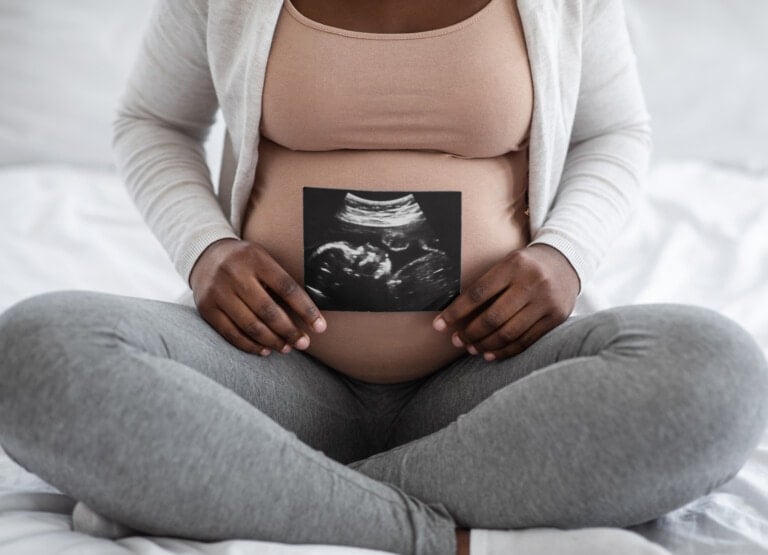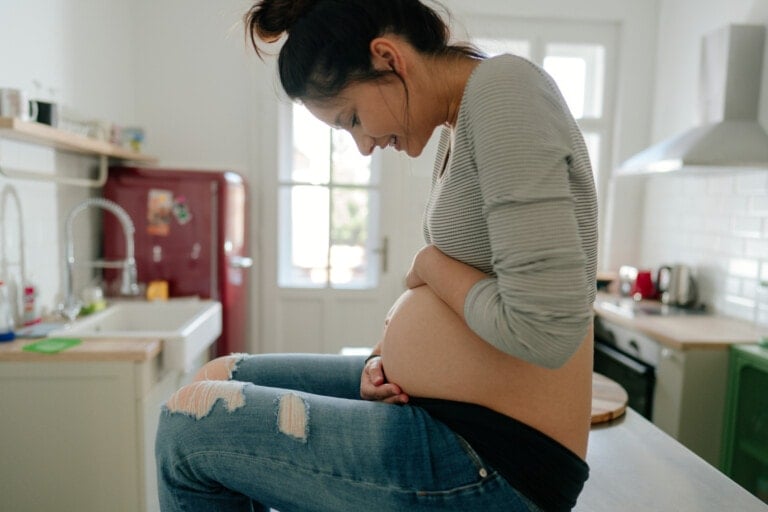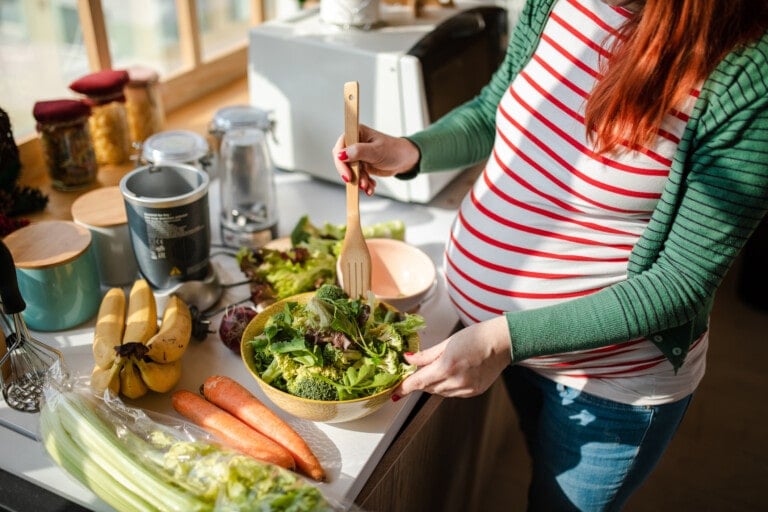Pregnancy is a time of significant change and increased physical demand. Mainly due to hormones, pregnant women are at an increased risk for conditions such as diabetes and high blood pressure. These issues almost always resolve after giving birth because the placenta causes them. However, even though they resolve, it is essential to know whether you have these conditions during pregnancy to keep you and your baby safe, and a glucose test can do that.1
Gestational diabetes is when your body has trouble producing enough insulin to break down the carbohydrates and sugar in your diet during pregnancy. Your medical provider can perform a glucose test to diagnose gestational diabetes. Many pregnant women wonder if there is something they can do to prevent gestational diabetes or anything they can do to ensure they pass the glucose test. Others are concerned about the ingredients in the glucose drink and wonder about alternatives for gestational diabetes screening.
What Is a Glucose Test?
Typically between 24 and 28 weeks of pregnancy, you’ll undergo a glucose challenge test as a screening tool to check for gestational diabetes. It involves drinking a beverage containing 50 grams of sugar within five minutes, then checking your blood sugar one hour later. Typically, providers want to see a blood glucose level below a threshold of 130 or 140 mg/dL to feel comfortable saying you do not have gestational diabetes.1
If your one-hour blood glucose test exceeds the threshold, you may have to repeat the test after fasting. This second test requires drinking a larger quantity of a sugary drink and checking your blood sugar every hour for three hours. You may be diagnosed with gestational diabetes if any of your three hourly values exceed their respective cutoffs.1
What Is Glucola?
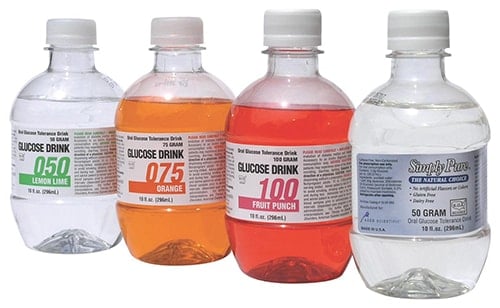
Glucola is a drink that contains the 50 grams of sugar you need for the glucose test during pregnancy. It contains water, dextrose from corn, and preservatives. Depending on the brand, it may also contain additional flavorings and colorings.2
Do You Have To Take the Test?
Historically, if a woman was at low risk for developing gestational diabetes, her provider may not screen her for it. To be considered low risk for gestational diabetes, you must meet all the following criteria:1
- Younger than 25
- Not a member of an ethnic group at high risk for type 2 diabetes
- BMI less than 25 kg/m2
- No previous history of glucose intolerance
- No immediate relative with diabetes
However, experts now recommend every pregnant woman be screened for gestational diabetes.3
Nothing is mandatory, and you are free to research and advocate for yourself if you prefer to skip certain medical interventions. However, if you do have gestational diabetes, it is best to know about it. Undiagnosed and untreated gestational diabetes can have negative health implications for both the mother and the baby. If your provider thinks the test is necessary, skipping it wouldn’t be recommended.1
Are There Alternatives to Glucola?
Although it is not advisable to skip the glucose test during pregnancy entirely, there are some alternatives to Glucola if you have reservations about the typical test. Some women have concerns about the ingredients in Glucola, while others worry about the side effects of drinking 50 grams of sugar in five minutes or less. It could be worthwhile to research alternatives to Glucola because one review showed that women who took the diabetes test using food instead of drink tolerated it better.4
Some potential research-backed alternatives include using Twizzlers or jellybeans.5,6
Your provider may also be willing to skip the test and instead draw a fasting plasma glucose value on you. This means you would not have to eat or drink anything, and they would look at your blood sugar value when you have eaten nothing at all.1
New Products Out There
There are also newer products on the market, such as The Fresh Test, a packet of powder that touts cleaner, organic ingredients while still fulfilling the 50 grams of sugar obligation. The packet gets mixed into water, and you proceed with the blood draw one hour later.
Historically, urine tests were sometimes used to screen for diabetes. Urine typically contains very little to no sugar, but if blood sugar gets too high, your kidneys will excrete some sugar through urination. But using urine glucose tests to screen for diabetes has fallen out of practice because it is less accurate than a blood test.7
How To Prepare for a Glucose Test During Pregnancy
The glucose test does not require many special preparations. Unless your provider tells you otherwise, you do not have to fast before the one-hour test. However, it is best not to consume a carbohydrate-heavy meal beforehand.
If you hope to use an alternative to Glucola for your glucose test, be sure to talk to your doctor beforehand. They will need to approve you using a different test substance—some providers will not do the blood draw for you if you do not use their drink. You will also need to receive instructions on how much to buy and what, whether candy, a beverage, or something else. You will likely have to supply your glucose test alternative.
If you exceed the blood glucose threshold on the one-hour test, you may be required to fast before the three-hour test.
What If the Glucose Test During Pregnancy Comes Back Too High?
Depending on how high the glucose test results during your pregnancy are, you may be diagnosed with gestational diabetes immediately, or you may need to complete a more in-depth test.8
Risks of Taking the Test
Drinking Glucola in five minutes or less can cause side effects, including bloating, pain, nausea, headache, dizziness, tiredness, and vomiting, but most women tolerate the test just fine.4
With any blood draw, there is also a risk of infection at the needle insertion site.
Benefits of Taking the Test
The main benefit of taking the glucose test when pregnant is learning whether you have gestational diabetes. Knowing this can allow you to implement strategies to manage your blood sugar if you do. Managing your blood sugar better may help you avoid negative outcomes associated with uncontrolled gestational diabetes, such as an increased risk for high blood pressure, C-section, large baby, and fetal birth injuries.1
How To Lower Your Blood Glucose Levels During Pregnancy
If you are diagnosed with gestational diabetes, it is not your fault. Gestational diabetes is a result of placental hormones counteracting your body’s insulin.1
However, there are steps you can take to lower your blood sugar. Some things you can do include the following:9,10
- Increasing your intake of non-starchy vegetables such as broccoli, green beans, and spinach
- Decreasing refined grains and added sugars
- Eating protein, fiber, and fat to accompany your carbs
- Getting regular exercise
Many women see the glucose test during pregnancy as a rite of passage into the third trimester. However, if you are uncomfortable with the standard test, be sure to talk to your provider about what your options might be. Although unpleasant, it does provide invaluable information to ensure the rest of the pregnancy is as healthy as possible for you and your baby. While no one wants to be diagnosed with gestational diabetes, knowing you have it can help you take steps to control and manage your blood sugar through the remainder of your pregnancy.













